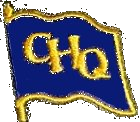Douglas MacArthur
General of the Army - United States Army
General Douglas MacArthur had, by 1945, led a long military career, including service in the occupation of Veracruz in 1914, the First World War, a posting as Superintendent of West Point, and served as Army Chief of Staff in the interwar period.
His relationship with Manila had begun early, as his father, General Arthur MacArthur, had led US forces when the city was taken from the Spanish in 1898, and had done so again during the Philippine Insurrection broke out in 1899.
After attending West Point MacArthur’s first post was in the Philippines, starting in 1903 as a Lieutenant in the US Army Corps of Engineers, but was forced to return to the US in 1904 after contracting malaria. He would return in 1922 after a time as Superintendent of West Point, taking a post as commander of the Manila Military District. He would remain in the Philippines until 1925, being instrumental in peacefully quelling a mutiny by the Philippine Scouts, before returning again the the United States. He would briefly return again in 1929 as Commander of the Philippine Department of the Army before again returning the the United States, this time to take the posting of Army Chief of Staff in 1930.
In 1935 the Philippine Commonwealth was created as a semi-independent government to replace the US Territorial Administration as a step toward full independence. It’s first President, Manuel Quezon, had known MacArthur since his father’s term as Governor General in 1900, and asked him to return again to the Philippines, this time to take the rank of Field Marshal of the new Philippine Army, serving to organize the armed forces of the Commonwealth. MacArthur accepted and traveled to Manila again, and on the voyage his mother would become gravely ill and he would meet his future wife Jean.
MacArthur speaks at a ceremony creating the Philippine Army Air Force in 1941 - Wikimedia
In December of 1941 the Japanese struck against the United States across the Pacific, and on December 8th Japanese air forces destroyed almost half of the US aircraft in the Philippines on the ground. On the 21st of December Japanese troops landed at Lingayen Gulf, and an attempted counterattack by US forces backed by a small unit of M3 Stuart tanks was repulsed, forcing MacArthur to abandon his plan for a defense of the entire island of Luzon, instead returning to an older plan and ordering a retreat to Bataan.
The ensuing struggle for Bataan commenced, with the the US and Filipino forces trapped on the peninsula with low supplies and morale, and many felt bitter toward their general, as he commanded the struggle from the vast bunkers under the island of Corregidor in Manila Bay.
“Dugout Doug MacArthur lies a shaking on the Rock
Safe from all the bombers and from any sudden shock
Dugout Doug is eating of the best food on Bataan
And his troops go starving on.”
MacArthur in his headquarters on Corregidor - Wikimedia
On March 12, 1942, MacArthur was ordered by President Roosevelt to evacuate the Philippines and go to Australia. Upon his arrival in Melbourne he uttered one of the most enduring phrases of the Second World War: “I shall return”.
MacArthur would subsequently become Supreme Commander of the Southwest Pacific Area, and would lead the US Army in their campaign through New Guinea, but would always consider a return to the Philippines his top priority. In 1944 he would argue with Admiral Chester Nimitz, who favored an invasion of Formosa, and was able to persuade President Roosevelt that the next major offensive in the Pacific should be against the Philippines.
MacArthur wades ashore at Leyte after his landing craft beached on a sandbar - Wikimedia
On October 20, 1944 MacArthur set foot on Philippine soil for the first time since his flight in early 1942. The campaign would progress across the island, and on December 18 MacArthur was promoted to General of the Army, becoming one of five officers to hold a five star rank.
On January 9th landings commenced on Luzon, with US forces coming ashore at Lingayen Gulf, the same location as the Japanese landings in 1942. The 6th Army advanced from its beachhead with limited Japanese opposition, and began a cautious advance south toward Manila.
MacArthur felt that his subordinates were being too careful, moving his headquarters forward of those of most of his formations, and firmly believed that the Japanese lacked significant forces to oppose his movements. He also fully expected his opponent, General Yamashita of the Imperial Japanese Army, to declare Manila an open city and withdraw, just as MacArthur himself had done in 1942, and busied himself with preparations for a grand entry into the capital at the head of a victory parade.
His expectations would soon prove to be overly optimistic.




